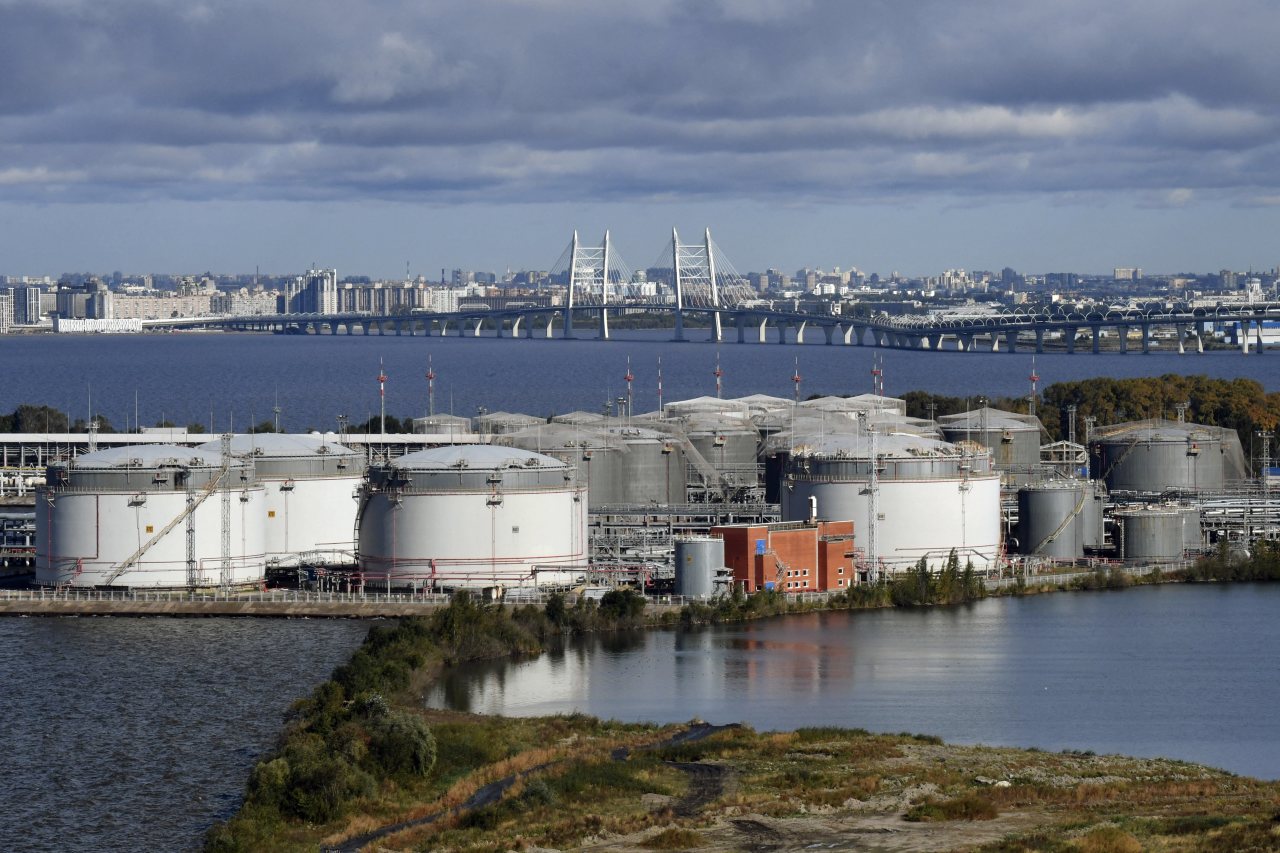
News
October 10, 2025
Opinion | Ukraine is Starving Russia of Oil
Putin could be forced to choose between sustaining the war and maintaining payouts to his oligarchs.
Ukraine's ongoing resistance is having a significant and perhaps unexpected impact on Russia's economy: it's starving the nation of vital oil revenue. As the conflict drags on, experts suggest that President Vladimir Putin may soon face a critical choice between funding his war efforts in Ukraine and keeping his powerful circle of oligarchs happy with lucrative payouts.
The disruption to Russia's oil industry, a cornerstone of its economy, stems from a combination of factors directly linked to the war. International sanctions, while not completely halting Russian oil exports, have made it increasingly difficult and expensive for Russia to sell its crude on the global market. Many Western countries have drastically reduced or eliminated their reliance on Russian oil, forcing Russia to find new buyers, primarily in Asia. However, these new markets often demand significant discounts, cutting into Russia's profits.
Furthermore, the war itself has created logistical nightmares for the Russian oil industry. Attacks on infrastructure, both real and feared, have disrupted supply chains and increased insurance costs for tankers carrying Russian oil. The "shadow fleet" of tankers, often older and less reliable, that Russia relies on to circumvent sanctions comes with its own set of risks and expenses, further eating into potential profits.
The shrinking oil revenues put immense pressure on the Russian government. The funds generated from oil sales are crucial for financing the military operations in Ukraine, paying salaries to soldiers, and maintaining the vast military apparatus. At the same time, Putin's power base relies heavily on the support of a small group of extremely wealthy individuals, the oligarchs. These individuals expect to be rewarded for their loyalty with lucrative government contracts and other financial benefits.
As the war continues and oil revenues dwindle, Putin may find it increasingly difficult to satisfy both demands. Cutting back on military spending could weaken Russia's position in Ukraine, while reducing payouts to the oligarchs could erode his political support at home. This potential squeeze places Putin in a precarious position, forcing him to make difficult choices that could have significant implications for the future of the war and his own grip on power. The situation highlights how Ukraine's resistance is not only impacting the battlefield but also striking at the heart of Russia's economic stability, potentially forcing a critical turning point in the conflict.
The disruption to Russia's oil industry, a cornerstone of its economy, stems from a combination of factors directly linked to the war. International sanctions, while not completely halting Russian oil exports, have made it increasingly difficult and expensive for Russia to sell its crude on the global market. Many Western countries have drastically reduced or eliminated their reliance on Russian oil, forcing Russia to find new buyers, primarily in Asia. However, these new markets often demand significant discounts, cutting into Russia's profits.
Furthermore, the war itself has created logistical nightmares for the Russian oil industry. Attacks on infrastructure, both real and feared, have disrupted supply chains and increased insurance costs for tankers carrying Russian oil. The "shadow fleet" of tankers, often older and less reliable, that Russia relies on to circumvent sanctions comes with its own set of risks and expenses, further eating into potential profits.
The shrinking oil revenues put immense pressure on the Russian government. The funds generated from oil sales are crucial for financing the military operations in Ukraine, paying salaries to soldiers, and maintaining the vast military apparatus. At the same time, Putin's power base relies heavily on the support of a small group of extremely wealthy individuals, the oligarchs. These individuals expect to be rewarded for their loyalty with lucrative government contracts and other financial benefits.
As the war continues and oil revenues dwindle, Putin may find it increasingly difficult to satisfy both demands. Cutting back on military spending could weaken Russia's position in Ukraine, while reducing payouts to the oligarchs could erode his political support at home. This potential squeeze places Putin in a precarious position, forcing him to make difficult choices that could have significant implications for the future of the war and his own grip on power. The situation highlights how Ukraine's resistance is not only impacting the battlefield but also striking at the heart of Russia's economic stability, potentially forcing a critical turning point in the conflict.
Category:
World